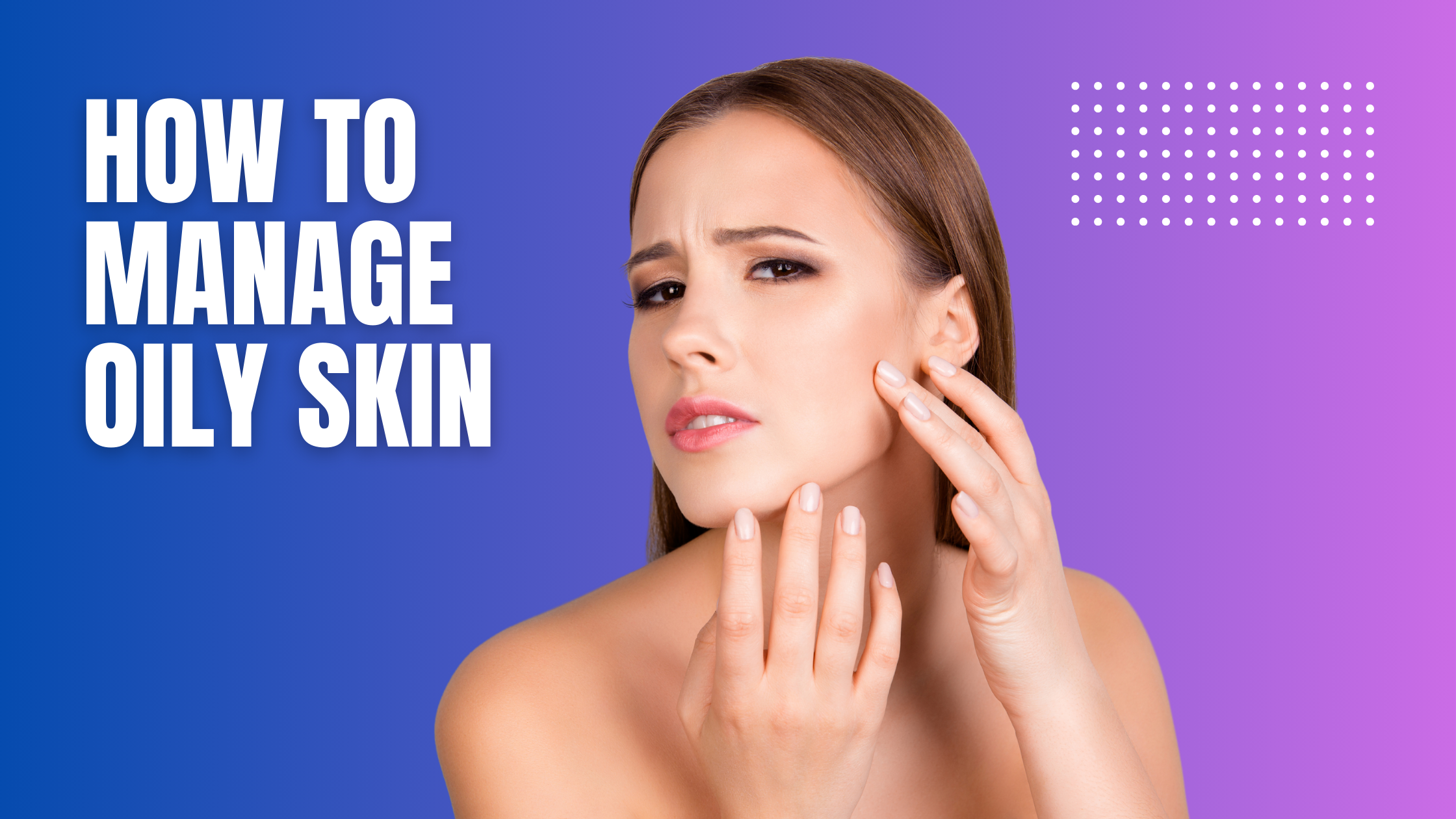How to Manage Oily Skin: Practices for Oily-Skinned Individuals to Keep the Greasy Feel at Bay
Explore practical ways to tackle oily skin, from gentle cleansing and salicylic acid use to hydration and oil-control products for a balanced, grease-free complexion.
Acquiring an oily skin type can be both a blessing and a curse. On one hand, it can keep your skin looking youthful and hydrated. On the other hand, excess sebum production can lead to a greasy feel, enlarged pores, and an increased risk of acne. If you have oily skin, don’t fret! You can manage and control the greasiness to achieve a healthy and balanced complexion with the proper practices and skincare routine. This listicle will explore effective practices for oily-skinned individuals to keep that greasy feel at bay and promote clear and radiant skin.
Cleansing with Care
Proper cleansing is essential for oily skin, but remember to do it sparingly. Washing your face too frequently or using harsh cleansers can strip away natural oils, increasing sebum production to compensate for that squeaky clean feeling. Instead, opt for a gentle, oil-free cleanser for your skin.
Furthermore, washing your face twice daily—once in the morning and once before bedtime—is essential to remove excess oil, dirt, and impurities. Avoid scrubbing too hard, as it can irritate the skin and trigger more oil production. Pat your face dry with a clean towel, and resist the temptation to rub vigorously.
Incorporate Salicylic Acid
Salicylic acid is a potent ingredient for oily skin. It penetrates the pores, dissolving excess sebum and preventing clogged pores. Look for oil-free skincare products that contain salicylic acid, such as cleansers, toners, and spot treatments.
Another great thing about this ingredient is that using a salicylic acid-based product once or twice a week can help exfoliate dead skin cells and clear your pores. However, be cautious not to overuse it, as excessive exfoliation can lead to skin irritation.
Hydrate with Oil-Free Moisturizers
Moisturizing is a crucial step for all skin types, including oily skin. However, choosing lightweight and oil-free moisturizers is essential to avoid adding unnecessary grease to your face. Look for non-comedogenic products explicitly labeled for oily or acne-prone skin.
Applying a suitable moisturizer after cleansing helps maintain skin hydration without triggering excessive oil production. Hydrated skin is less likely to produce extra sebum to compensate for dryness.
Embrace Oil-Control Products
Many cosmetic and skincare brands offer oil-control products to manage oily skin daily. Oil-absorbing sheets, setting powders, and mattifying primers are great options for controlling shine and keeping the greasy feel at bay.
Carry oil-absorbing sheets in your bag to blot excess oil when you’re on the go. These sheets effectively remove surface oil without disturbing makeup or drying the skin.
Avoid Heavy Makeup Products
While makeup can be a fun way to enhance your features, using heavy or oil-based makeup products can exacerbate the greasy feel of oily skin. Instead, opt for oil-free and non-comedogenic makeup formulas.
Water-based foundations and mineral powders are excellent choices for oily skin. They provide coverage without clogging pores or feeling heavy on the skin. Also, remove makeup thoroughly before bedtime to allow your skin to breathe and regenerate.
Don’t Skip Sunscreen
Sunscreen is a non-negotiable step in any skincare routine, regardless of skin type. For oily-skinned individuals, choosing a lightweight and oil-free sunscreen is essential.
Look for non-comedogenic and gel-based sunscreens with at least SPF 30 to protect your skin from harmful UV rays without adding extra oil. Daily sunscreen helps prevent sun damage, premature aging, and skin discoloration.
Maintain a Balanced Diet
What you eat can also influence your skin’s oil production. Avoiding greasy and high-fat foods can be beneficial for oily skin. Instead, focus on a balanced diet rich in fruits, vegetables, whole grains, and lean proteins.
Drinking plenty of water is crucial for overall skin health. Staying hydrated helps flush out toxins and keeps your skin fresh and radiant.
Having oily skin doesn’t mean living with a greasy feel. Adopting the proper practices and a suitable skincare routine allows you to manage excess oil production and achieve a balanced complexion. Cleansing gently, incorporating salicylic acid, and hydrating with oil-free moisturizers are vital for oily-skinned individuals.
Embrace oil-control products and opt for lightweight, non-comedogenic makeup to keep shine at bay. Remember to protect your skin with sunscreen daily and maintain a balanced diet for overall health.

